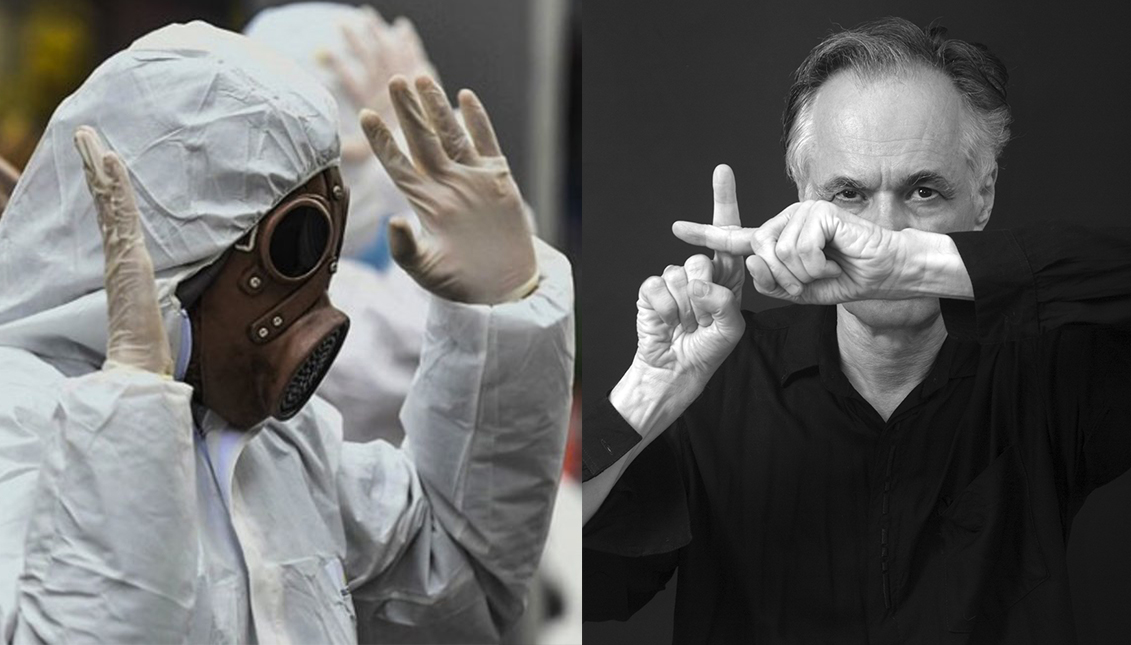
The alternative to quarantine proposed by a well-known Colombian writer
The writer Fernando Vallejo criticized the hysteria of today and called the scientists "hoaxes."
The prestigious Colombian writer, Fernando Vallejo, is fed up with media jargon in times of pandemic. "What do those who keep score mean by "cases"?" he wrote in a column in El Espectador, that attacked everything, especially the hysteria that has invaded the streets. A panic that, according to Vallejo, comes from above, from politicians and epidemiologists - "the stars of the moment" and also "the most harmful vermin," he calls them - who seek to paralyze a country and, by extension, the world when that is not the solution.
"They are the swindlers and cheats of science who add to those of politics, religion, banking, and so on and so forth. Humanity is a swindler and an opportunist, with its essential dishonesty," he said.
The controversial author, whose attacks on power - and on anything, his critics say - are well known, and seem to have hit the mark this time. Perhaps not in form, by hitting the health professionals with his pen, but in substance.
According to Vallejo, the data on the number of infected people in countries like the United States or Colombia are not reliable, not at least for making a very serious determination: to declare quarantine and paralyze the countries.
"Does Dr. Anthony Fauci, the director of the U.S. Institute of Allergy and Infectious Diseases who has become the star of the day, know this? I've been following him for decades," he says in furious prose, "and he is a colleague of the discoverer of the so-called AIDS virus, Robert Gallo, who has already been unmasked as a scoundrel."
What the writer proposes is what was done in countries like South Korea, an example in the containment and control of the contagion: to test all people so that the magnitude of the tragedy can be properly accounted for.
"If there are ten infected, that is ten healthy carriers, let them lift the quarantine the day after tomorrow because in four or five days we will reach Lombardy and New York," he wrote.
Asymptomatic patients, without symptoms but carrying the virus, are not being diagnosed. Their rate of transmission to other people is high, scientists say.
In fact, China, which was the epicenter of the pandemic but no longer registers cases - the way it did so is separate - has lifted mobility restrictions in the country but the fear now is that those citizens without symptoms may again spread the virus and are reporting the number of them: some 40,000. These have been forced into a 14-day quarantine; meanwhile, the rest of the residents are returning to "normal".
RELATED CONTENT
While Vallejo feels like "Urbito the repatriated, imprisoned in his residence," his critics have called him "irresponsible."
In a commentary on his column, Colombian journalist Néstor Morales said of the writer that "as long as he opposes it, he is even capable of attacking the medical corps, which few people in the world do." Felipe Zulueta, a journalist with the same newspaper, also accused Vallejo of being "a great provocateur" and "irresponsible."
"You can't encourage many people to leave their homes, to believe that this is not the right thing to do, and we would have very harsh consequences," said writer and journalist Alberto Linero. "Let him look at Spain and realize if this is not evident."
Some Spanish media, aware that they were spreading panic among the population, have also begun to report the cases of healing. Although the number of people infected in Spain yesterday was 110,238 and there were 10,003 deaths, at least 27,000 people were discharged and the contagion curve seems to have stabilized. While in the United States, the number of positive for COVID-19 is 240,511 (of course, in a country of around 327 million people and not 46 million, like Spain), the dead, in turn, already total 5,808, but there are more than 10,300 sick people who have left the hospital.
The difference between the two countries, which are cited by both Vallejo and his critics, is that while the United States has given the green light to a rapid screening test that will begin to be used in health centers and other hot spots. Spain is still a long way off with the tests, which have just arrived from China after a first shipment proved defective. The problem, on the other hand, is the same one Vallejo mentioned in his explosive column:
If the tests are only used to detect the virus a few days after infection - in the case of Spain, five or six - and they are only done on people with symptoms, how can they talk about "cases"? How many people have the coronavirus without knowing it and interact with their family, take their dogs out for walks or shop perhaps without the use of masks thinking nothing is wrong?











LEAVE A COMMENT: